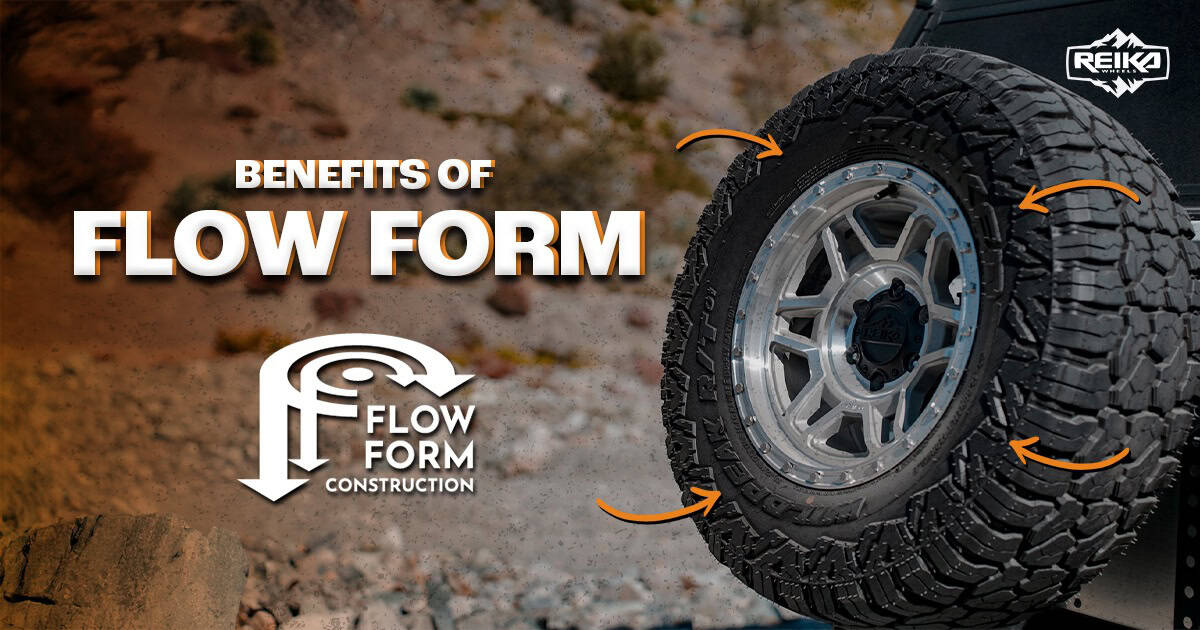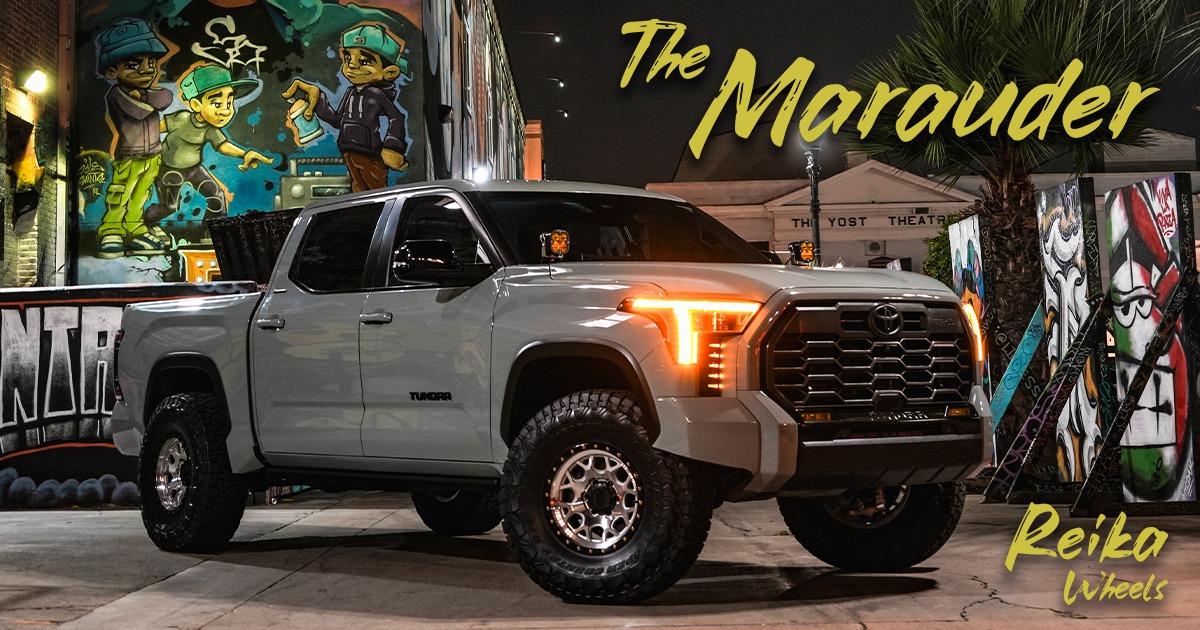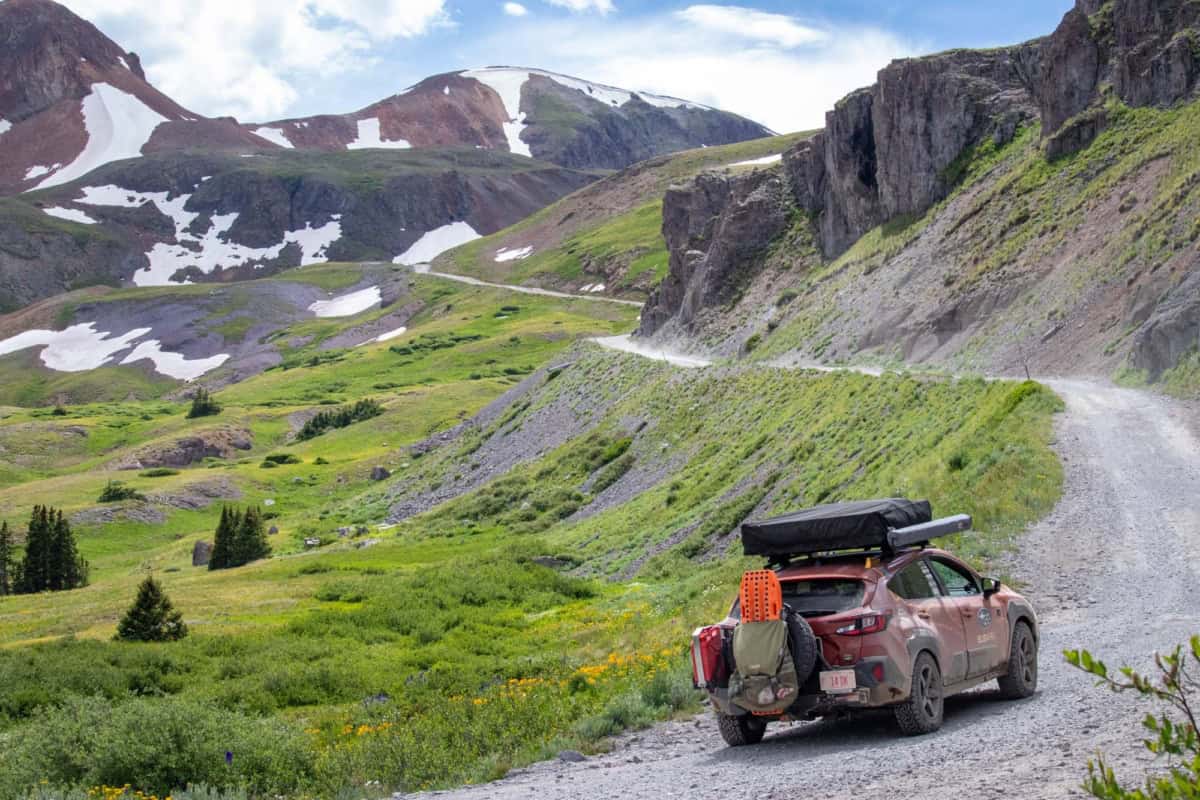Off-Road Wheels and Flow Formed Construction
When traveling off road, drivers need to feel confident. It’s important to strike a balance between weight reduction and durability. That’s why off road enthusiasts often look for wheels that combine both lightweight materials and robust construction.
When determining what manufacturing process to use for REIKA Wheels, three important factors were considered: weight, strength and options.

Lightweight
Lightening the load in any way possible is definitely a plus when offroading. A lighter weight wheel means less unsprung weight, which allows the suspension to react more quickly and maintain better contact with the ground. This improves traction and overall handling. Additionally, lighter wheels require less power to get moving and stop, which can be beneficial when off roading. In challenging conditions where sudden acceleration or braking is necessary, having less unsprung weight makes a big difference.

Strength
When off-roading, your wheels need to be able to withstand demanding conditions. They should be strong enough to handle impacts without bending or breaking. A weak or compromised wheel increases the risk of accidents or mechanical failures. This can be an extremely undesirable situation when remote and far from immediate assistance. The strength of off-road wheels is essential when traveling off the beaten path, ensuring safety, reliability, and performance while off-road.

Options
It was imperative that we create a wheel line that offers more options than the standard OEM design. Offering multiple sizes, finishes, and offsets, allows for a personal expression of style. Expressing individuality and making your vehicle stand out from others is what we aim to accomplish.
All of these considerations pointed us in the direction of flow form manufacturing for our REIKA wheels.
Flow Formed Benefits
- Highly Durable: The flow formed process enhances the aluminum’s grain structure and strength, providing superior durability compared to traditional cast wheels.
- Lightweight: Increased material strength allows for a thinner rim barrel, reducing wheel weight and improving performance and ride quality.
- Increased Options: Advanced forming programs offer a wider range of widths and offsets, giving you more customization than traditional cast wheels.
Hybrid Cast and Forged Process
The flow formed process is essentially a hybrid process of cast and forged wheels. When manufacturing with flow formed construction, wheel performance is improved by increasing wheel strength and reducing wheel weight, essential for off-road wheels.

The Flow Formed Process
A comprehensive layout of how the process unravels from start to finish.
| Stage | Flow Formed Phase Process |
|---|---|
| Materials | Each REIKA wheel is built from A356 aluminum alloy. This material is known for its strength and favorable casting properties. |
| Initial Casting | The procedure begins like a cast wheel where aluminum ingot, magnesium, titanium and silicon are heated to liquid form, filtered, degassed and inspected. The liquified aluminum is poured into the casting machine’s crucible to be pressurized into the high temp steel mold. |
| Measurement | Once solid, the casting is removed from the mold, bathed in water, and general measurements are taken to confirm correct wheel size. |
| Checkpoint | One of the distinguishing characteristics of a flow formed casting shows up at this point. A short rim barrel skirt appears, as it has not yet been formed into the full rim width. |
| Preparation | To prepare for the flow-formed process, the wheels are conveyed through a preheated oven and placed on a preheated mandrel which is shaped in the final rim barrel profile. |
| Flow Form Process | With multiple passes, forming rollers slowly squeeze and stretch the thick aluminum skirt material resulting in the final rim barrel shape. This forming process produces an extremely consistent and uniform barrel thickness which absorbs impact energy better than one that is fully cast. |
| Strength | The wheels are then bathed in water once more and taken to a heat treatment stage that locks in the proper hardness levels. |
| Finishing | The flow formed process is now complete and the rest of the traditional wheel manufacturing process resumes: lathing, machining, balance and leak testing, cleaning, and applying finishes. |
| Quality Control | Specific quality control checks and rigorous wheel tests are performed to ensure strength, durability, and overall quality. |
| Complete | Once the wheels have passed through these thorough inspections, they can officially be considered flow-formed Wheels. |
Your REIKA Wheels Are Ready to Make a Statement
Because REIKA wheels have been manufactured using the flow formed process, you can be certain that they are of the highest quality. These lightweight, durable wheels will allow you to take to the trails in style with added strength so you never have to worry about missing a beat.
For questions about our products, email [email protected] or give us a call at 888-734-5287 between the hours of 7am-5pm, Monday through Friday.
View your next set of Flow Formed REIKA Wheels here.




